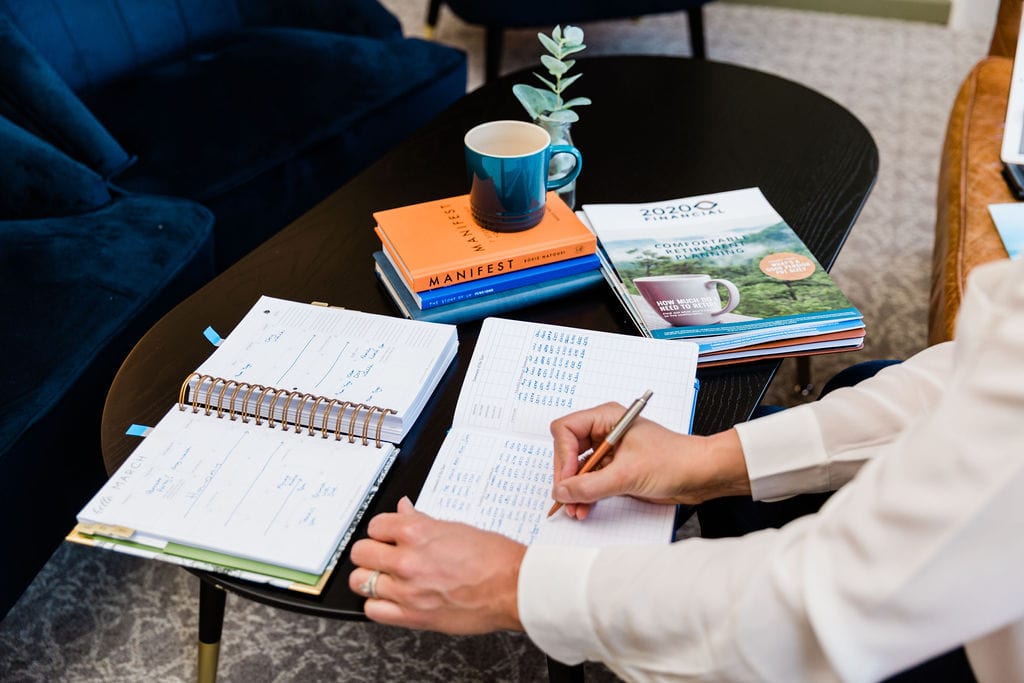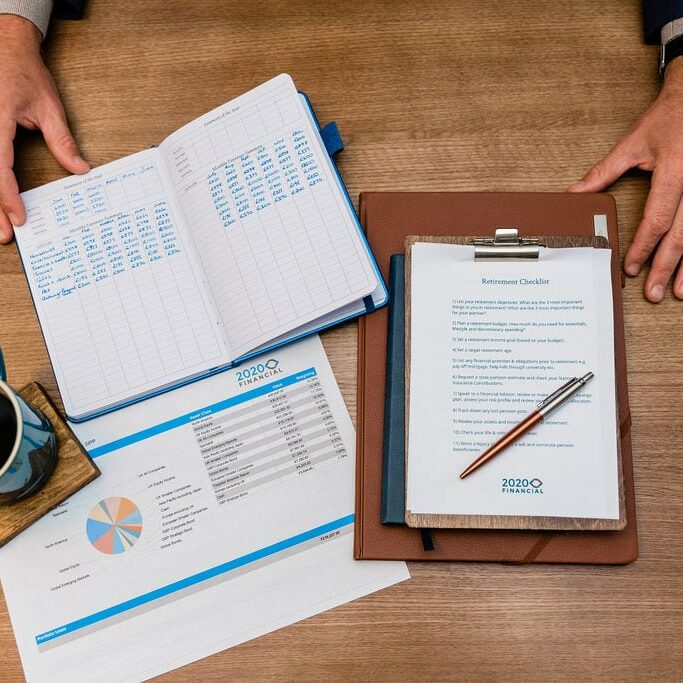Outlining a budget for retirement is one of the first steps in retirement planning. Without it, it’s impossible to know how much you need to save for the lifestyle you desire. Retirement budgeting and planning are crucial to take the guesswork out of pension planning and set yourself up for a financially stable and stress-free future.
But where do you start? We’ve put together a simple guide to help you budget for retirement:
Budget for retirement – the essentials
You cannot avoid essential spending in retirement: it’s the things that you need to cover and would find it hard (if not impossible) to reduce.
Essential expenditures in retirement could include:
- Household bills
- Food costs
- Rent or mortgage repayments
- Petrol
- Broadband and phone bills
- Insurances
- Clothing
- Household goods
This figure will be different for everyone, but you must have it as a starting point to know how much money you will need every month to maintain a minimum and basic standard of living. Remember that these costs will change over time, and you will need to account for any potential rises.
If you want a rough guide on how much you’ll need for the essentials, check out the Retirement Living Standards research published by the Pensions and Lifetime Saving Association (PLSA)
Related: Try our Retirement Cost Calculator

Budgeting for lifestyle expenditure
Lifestyle expenditure covers all of the activities, experiences and items that support your standard of living. It’s often described as ‘the fun stuff’ – the human element of financial planning.
Creating a lifestyle budget starts with deciding what sort of retirement you want. When you picture a typical day in retirement, what does it look like? This is the image that you need to map out and add some financial goals against.
But where do you begin? Keep it simple – how will you spend your days in retirement? What elements of your lifestyle will you not compromise? What activities are non-negotiable in your life? Perhaps your goals include:
- Playing golf
- Lunching and meeting friends for coffee
- Spoiling the grandchildren
- Living abroad
- Frequent travel
- Owning a dog
- Regular yoga classes
- Upgrading your car and taking road trips
- Having a cleaner and/or gardener
- Shopping trips and buying gifts for loved ones
As you explore this budget, build it around your plans for the earlier stages of retirement, the period when you will be the most active. Of course, costs will vary over time, but there will undoubtedly be areas you need to redirect your money to if you are less active in later life.

Discretionary Expenditure in Retirement
Discretionary expenditure in retirement covers the one-off (but significant!) items you plan to buy. Discretionary spending usually happens on more luxurious items, such as a new car, a once-in-a-lifetime holiday, or a new kitchen.
While it may feel exciting to plan these purchases on the spur of the moment when it comes to your retirement, you need to lay the groundwork ahead of time. Why? Because these big purchases can have an enormous impact on your pension pot.
You will need to tell your financial advisor if and when you plan to withdraw significant chunks of money from your pension pot, as it may require some forethought and planning. Once the money has been removed, your pension pot will look altogether different. Consequently, there will be less money to work with in your investments, and you may need to adjust your income accordingly.
Likewise, your financial advisor needs to know about any planned discretionary spending which could have dramatic tax implications. For example, if you withdraw all of your tax-free cash (25% of your pension) straight away, you could find yourself paying your highest tax rate on the remainder of withdrawals from your pension. And let’s face it: we all want our tax payments to be as efficient as possible.
So, plan your discretionary purchases alongside your financial advisor (including making them aware of how you plan to fund them) to keep your finances healthy and sustainable.

Creating a retirement contingency fund
There will always be additional dents in your pension pot that you cannot plan for: and while we cannot predict them, you must factor them into your budgeting.
Your contingency fund is the budget for things that you can’t foresee but also can’t avoid.
This could include:
- A new set of tyres
- A replacement boiler
- Replacing all your fence panels when a freak storm occurs
- Emergency vet bills
It could also be for unexpected costs like helping an adult child set themselves up after an acrimonious divorce. We’ve had several clients unexpectedly request tens of thousands of pounds to help out family members or children who’ve fallen on hard times. These situations rapidly become the highest priority, and with a good contingency plan in place, they can be quickly solved.
Ensure you have a realistic figure set aside for your contingency planning so that your golden years can be stress-free, fully protected and totally at ease.
Retirement spending calculator
Need a helping hand? Our retirement cost calculator offers a great way to outline an initial budget for your retirement. It will help you:
- understand the rough numbers around your retirement based on your expenditure
- use our simple calculations to help you budget accordingly
- gain the confidence to make the right decisions for your future
- have the opportunity to receive further, in-depth and tailored advice from our team of investment specialists
We’re here to support you if you would like bespoke, tailored advice.
Our independent financial advisors will work with you to create a retirement budget based on your current circumstances and hopes for the future. Get in touch for a free consultation—no hard sales. No obligations. Just an open, honest chat with a retirement specialist to help you understand your current position and hopes for the future.



